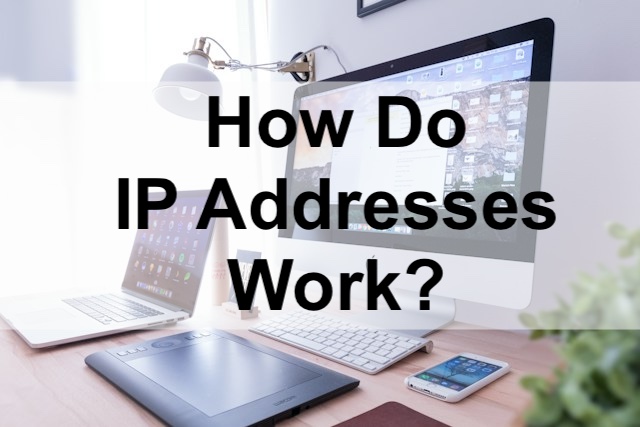How Does an IP Address Work?

In this interconnected world, an IP address plays a crucial role as they act as the unique codes to identify the devices and allow them to connect. Moreover, IP addresses allow safe data transmission. To understand IP addresses, you should know how it actually works. In this article, we will discuss the actual working and function of IP addresses.
IP Security Here:
How Does an IP Address Work?
IP addresses are like the identification codes for all devices connected over the internet. When you are using the internet, a code is assigned to your device. This code is actually for both the sender and the receiver assigned by an internet service provider.
When you use any website, your computer translates it into an IP address. Then, your IP address routes information between your device and the website. It is also used for sending and receiving emails, documents, video calls, or online streaming. It ensures that your data reaches the right device without any loss.
Structure of IP Address
The two structures of IP addresses are:
IPv4
IPv4 addresses are the most common, consisting of four sets of integers separated by periods. With these values ranging from 0 to 255, there are roughly 4.3 billion IPv4 addresses in all.
IPv6
This IP address is designed to overcome the limitations of the IPv4. This IP comprises eight groups of four hexadecimal digits separated by colons. The IPv6 IP addresses are infinite in numbers as they were made to cover more devices.

https://unsplash.com/photos/person-using-laptop-EZSm8xRjnX0
Check These:
Types of IP Address
The four types of IP addresses are:
Public
On the public internet, public IP addresses are used to identify devices. These IP addresses are and act as your device’s phone number. They are commonly used in home internet connections.
Private
The private IP addresses are used in the local network and cannot route your devices on public internet. These IP addresses are commonly used to improve network security and to avoid conflict with other IP addresses.
Dynamic
The dynamic IP addresses are automatically assigned by the internet service provider. These IP addresses can also change over time. This type of IP address is most commonly used for home internet connections.
Static
The static IP addresses are manually assigned by your internet service provider to your devices. This type of IP address does not change over time and remains the same and constant. They are widely used in web servers and business networks.